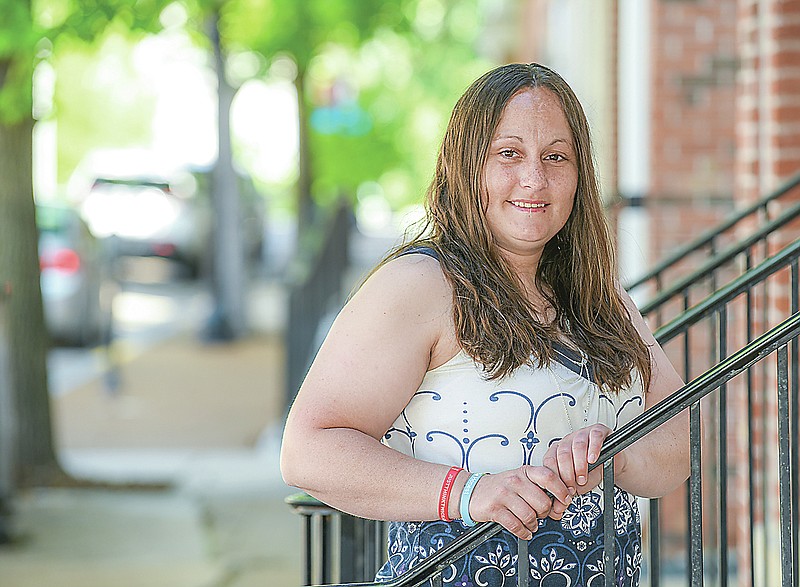As a graduate of a Cole County alternative court, Mandi Peters wanted to use her personal experience with her substance use disorder and her recovery to work with others dealing with the same issues.
Peters, who is a graduate of the Veterans Court in the Cole County Circuit Court, decided she could give back by becoming a certified peer specialist.
"Most of my adult life, I was in the throes of addiction - I even died once," Peters said. "The judge told me I either successfully complete this program or I was going to prison. I was so tired of hurting and hurting the ones I loved, and I was ready for a change."
Peters served two years in the U.S. Army. From 2004-2006, Peters was a dental assistant, stationed at Fort Bliss in El Paso, Texas. Her job was to help make sure soldiers being deployed to Iraq had proper dental hygiene.
"We also had to make sure their dental records were kept up because in the event of their death, that's one of the first things used for identification," Peters said. "That was a high-stress job, but it was very rewarding."
Peters said she had to stay clean while she was in the service, but her substance abuse goes back to when she was 13.
"Right after I got out of the military, I started getting addicted to methamphetamine, and that was when I was 20," Peters said. "I'd have some times where I was clean, but I never really dealt with it to try and stay clean in the right way."
Losing contact with her children was the trigger that made Peters want to get help.
"My girl was 3 months old at the time, and I missed her so much," Peters said. "I know they say do it for yourself, but I wanted my family back together. I have a tight-knit family, and I damaged all those relationships. I wanted to be the mom they needed."
Peters' attorney proposed getting into the treatment court program as a way to avoid prison.
"I knew it was going to be intense," Peters said. "I will never forget my first court appearance with Judge (Pat) Joyce. I sat in court listening, and the tears were running down my face. I was so scared of failing, again."
Slowly, though, Peters said, things began to change for the better. She took things one day at a time.
"I got clean, and I started feeling better," Peters said. "People I loved started talking to me again and believed in me even after everything I put them through. I have my family back, a good job and am heading back to college to finish my degree in psychology at Columbia College."
Before she got clean and on the right path, Peters said she put up mental barriers that kept her from finishing her schooling and finding recovery.
"Once you find recovery, you find out how you've made it so much harder on yourself to get out of that cycle," Peters said. "I didn't think I'd ever be able to have a decent job and repair my relationships, and in just a year's time, I was to make so many changes."
The most important message that anybody who suffers from addiction can hear, Peters said, is that anyone can get out of it, if they want to.
"Don't be afraid to ask for help," she said. "I was the worst of the worst."
Peters plans to continue to help with the treatment program. She would like to work at in-patient treatment facilities.
"To see that transformation of people, I think, would be so amazing," Peters said. "I know it was for me."

